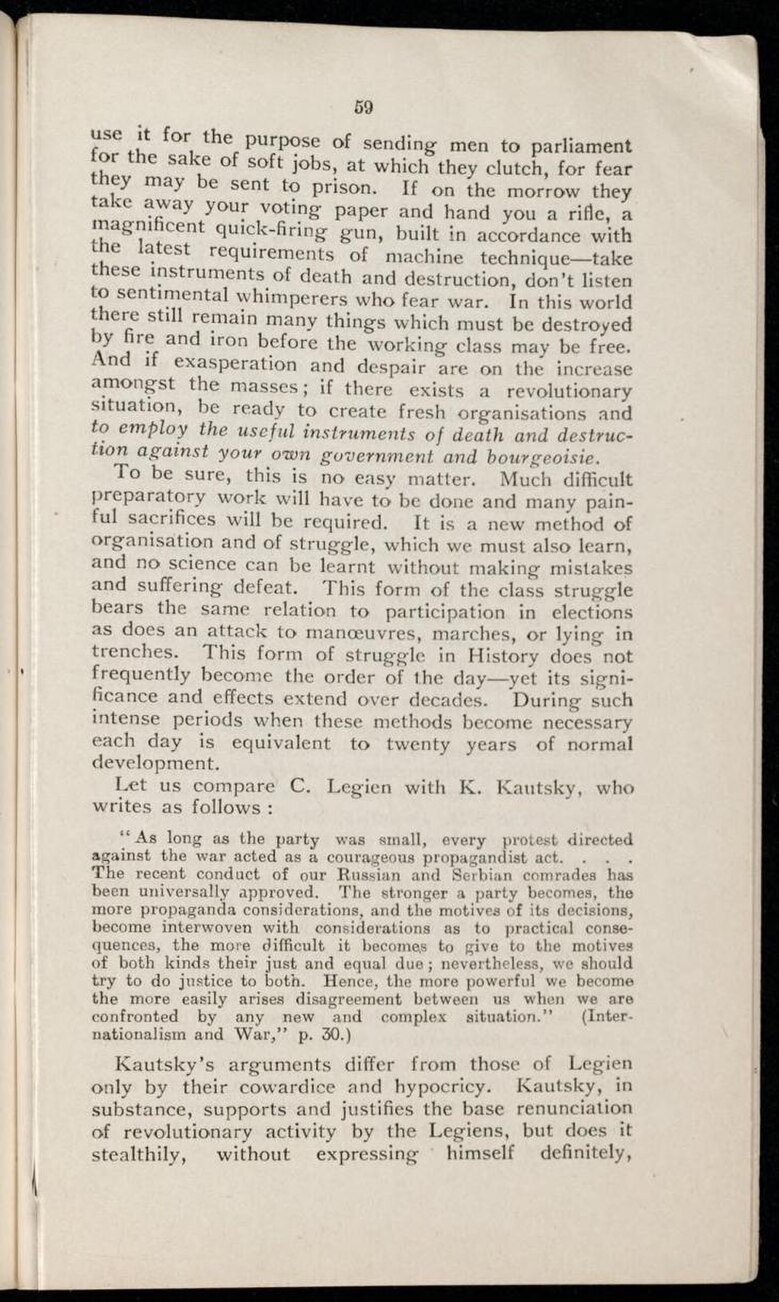59
use it for the purpose of sending men to parliament for the sake of soft jobs, at which they clutch, for fear they may be sent to prison. If on the morrow they take away your voting paper and hand you a rifle, a magnificent quick-firing gun, built in accordance with the latest requirements of machine technique—take these instruments of death and destruction, don't listen to sentimental whimperers who fear war. In this world there still remain many things which must be destroyed by fire and iron before the working class may be free. And if exasperation and despair are on the increase amongst the masses; if there exists a revolutionary situation, be ready to create fresh organisations and to employ the useful instruments of death and destruction against your own government and bourgeoisie.
To be sure, this is no easy matter. Much difficult preparatory work will have to be done and many painful sacrifices will be required. It is a new method of organisation and of struggle, which we must also learn, and no science can be learnt without making mistakes and suffering defeat. This form of the class struggle bears the same relation to participation in elections as does an attack to manœuvres, marches, or lying in trenches. This form of struggle in History does not frequently become the order of the day—yet its significance and effects extend over decades. During such intense periods when these methods become necessary each day is equivalent to twenty years of normal development.
Let us compare C. Legien with K. Kautsky, who writes as follows:
"As long as the party was small, every protest directed against the war acted as a courageous propagandist act. … The recent conduct of our Russian and Serbian comrades has been universally approved. The stronger a party becomes, the more propaganda considerations, and the motives of its decisions, become interwoven with considerations as to practical consequences, the more difficult it becomes to give to the motives of both kinds their just and equal due; nevertheless, we should try to do justice to both. Hence, the more powerful we become the more easily arises disagreement between us when we are confronted by any new and complex situation." (Internationalism and War," p. 30.)
Kautsky's arguments differ from those of Legien only by their cowardice and hypocricy. Kautsky, in substance, supports and justifies the base renunciation of revolutionary activity by the Legiens, but does it stealthily, without expressing himself definitely,
